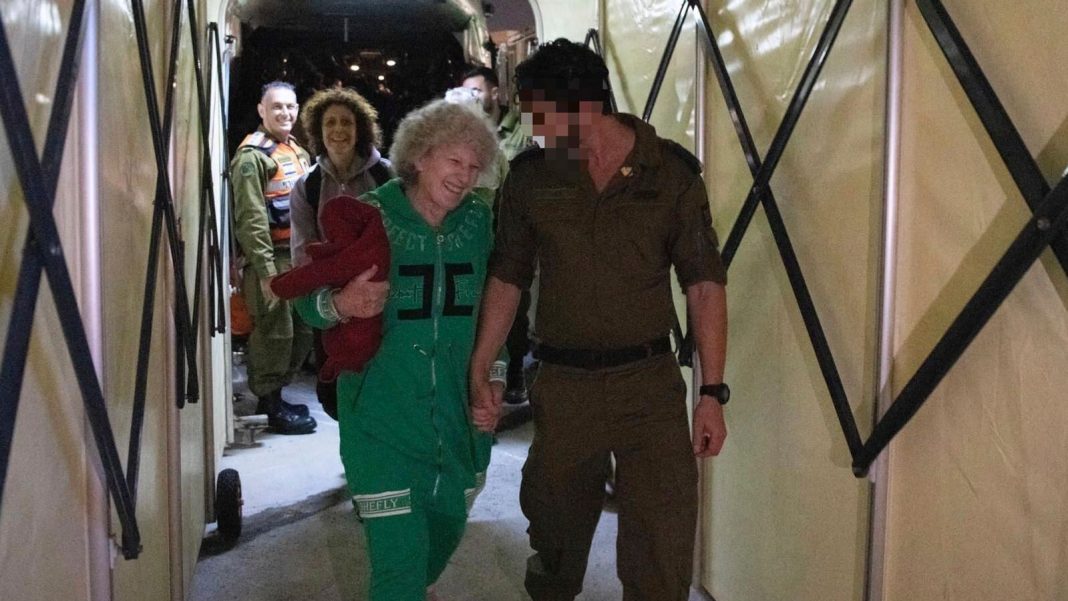Hostages released by Hamas have been describing their time in captivity, with one saying conditions were “suffocating”, with shortages of food.
In some of the first accounts to emerge amid the release of more than 50 hostages over the past few days, people have spoken about what life was like after their kidnap on 7 October.
Ruthy Munder, 78, said she spent the entirety of her time with her daughter, Keren, and grandson, Ohad Munder-Zichri, who celebrated his ninth birthday in captivity.
Follow live: ‘Clashes’ outside prison as detainees released
Speaking to Israel’s Channel 13, she said they initially were fed “chicken with rice, all sorts of canned food and cheese” and slept on plastic chairs.
They were given tea in the morning and evening, and the children were given sweets. But the menu changed when “the economic situation was not good, and people were hungry.”
Ruthy Munder. Pic: Bring Them Home Now
Ms Munder’s husband, Avraham, also 78, was taken hostage too and remains in Gaza. Her son was killed in the Hamas attack.
Boys who were there would stay up late chatting, she said, while some of the girls would cry, she said. Some boys slept on the floor.
Ms Munder said she would wake up late to help pass the time. The room where she was held was “suffocating,” and the captives were prevented from opening the blinds, but she managed to crack open a window.
“It was very difficult.”
Please use Chrome browser for a more accessible video player

0:49
11 more hostages handed over to Red Cross
Read more:
Have hostages gone missing in Gaza?
Thousands march against antisemitism in London
‘She was in complete darkness’
Family members of other freed hostages spoke of their loved ones having to get used to their surroundings again after spending so much time in darkness in Hamas tunnels, where it was suspected some of the hostages were being kept.
Eyal Nouri, the nephew of Adina Moshe, 72, who was freed on Friday after being kidnapped from her home in kibbutz Nir Oz, said his aunt “had to adjust to the sunlight”.
“She was in complete darkness,” Mr Nouri said. “She was walking with her eyes down because she was in a tunnel. She was not used to the daylight. And during her captivity, she was disconnected … from all the outside world.”
Two Israeli TV stations, Channels 12 and 13, reported that Hamas’ top leader in Gaza, Yahya Sinwar, visited hostages in a tunnel and assured them they would not be harmed.
“You are safest here. Nothing will happen to you,” he was quoted as saying in the identical reports, which did not reveal the source of the account.
The reports from Israeli hostages come as freed Palestinian prisoners have complained of mistreatment.







